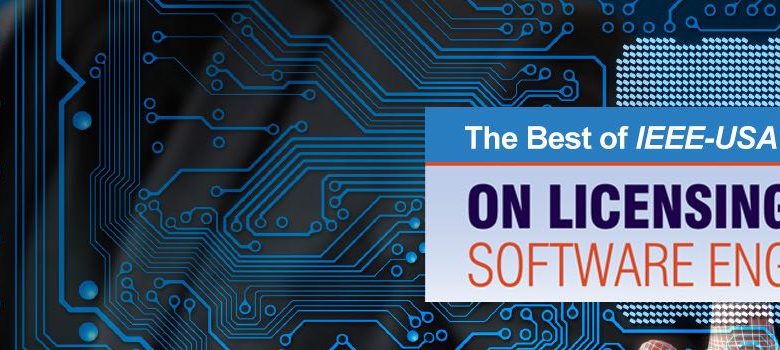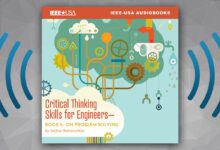
“Being a licensed professional software engineer is an important credential, and even if not required for the work you do, it can distinguish you from other professionals, and unlock job opportunities,” according to Dr. Phillip A. Laplante, CSDP, P.E.
As you make your list of resolutions for the New Year, resolve to download your January free eBook for members only: The Best of IEEE-USA InSight: On Licensing Software Engineers.”
Laplante compiled this collection of 10 useful articles appearing in IEEE-USA InSight the past few years. The book examines the question of whether software engineers should be licensed in the United States. A hotly debated topic for more than 20 years, the controversy largely ended in 2013, when 30 states began offering licensure for software engineers. This collection of articles tells the story of how we got to this point, reviews some of the many controversies, makes the case for licensure, and tells you how to get there-should you choose to do so.
The articles are divided into three parts. The first part presents the case for licensing software engineers, and in the discourse, also covers the many objections to such licensure. The second part reviews the requirements for obtaining licensure, and describes the process in creating the Principles and Practices of the Software Engineering Exam. The third part contains articles that could help you obtain licensure as a software engineer, if you are qualified, and you seek to obtain that credential.
Laplante was chair of the Software Engineering Licensure Examination Development Committee, and is a member of IEEE-USA’s Licensure and Registration Committee. An expert on safety critical systems, he and Mitchell A. Thornton, who was vice chair of the IEEE-USA Licensure and Legislation Committee, wrote most of the articles. In one of the articles, Laplante writes about the IEEE-USA study guide developed to help prepare for the Principles Practice of Software Engineering Examination. He points out the most daunting obstacle to licensure may actually be the Fundamental of Engineering (F.E.) Examination-and he suggests steps to ensure success.
In another article, Thornton responds to professional engineers who want to understand how licensure will benefit them. He says that while many engineers work for companies, and are usually protected by “industry exemption” clauses, many other engineers will need to be licensed-if they want to work as a consultant, or start their own engineering company. “Licensure gives you the privilege to offer engineering services to the public,” he writes, “and under most U.S. state laws, it’s illegal to start your own engineering business without being licensed, or at least having a company officer in charge of engineering who is licensed.”
Now through 15 February, IEEE members can get a free download of this eBook by going to: https://ieeeusa.org/product/the-best-of-ieee-usa-insight-on-licensing-software-engineers/. Log in with your IEEE Web account, add the book to your cart and use promo code JANFREE17 at checkout.
Georgia C. Stelluto is IEEE-USA’s Publishing Manager, and Manager/Editor of IEEE-USA eBooks.






